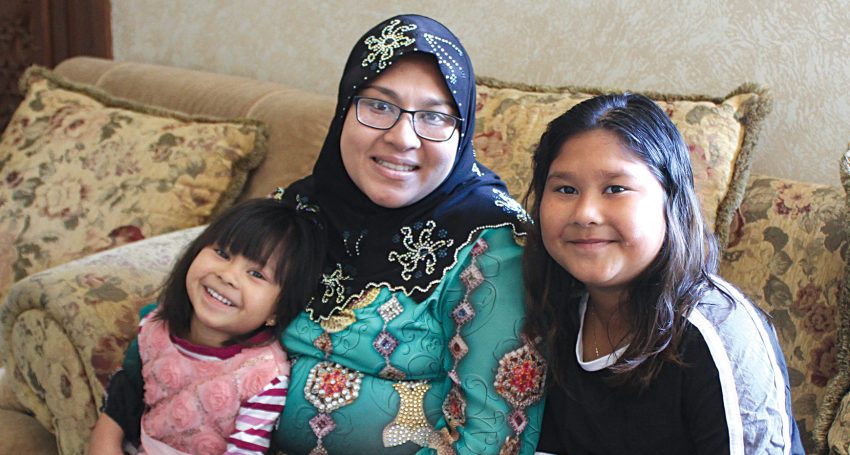Rohingya crisis hits home
People
Sitting in her lounge room with her two beautiful daughters laughing and playing with Lego in front of her, you wouldn’t think Shwezin Win would have a care in the world.

With another baby due next month there is about to be more joy in the household, but after speaking with Shwezin for a while you realise that behind the smile and gentle voice there is a sadness… that has come from losing loved ones and the place she once called home.
For Shwezin, 37, her husband Farok, 40 and daughters Soebeda 9, and Lilly (Zobeta) 4, are Rohingya refugees, forced to flee their home country of Myanmar (formerly Burma) following atrocities against their people.
Advertisement
Considered to be one of the most persecuted minorities in the world, religious and ethnic tensions between the Rohingya Muslims and Rakhine Buddhists (who make up the majority of the population in Myanmar) escalated in 2012, and has deteriorated again in recent months.
In what some are describing as ethnic cleansing, the latest spate of violence has seen family homes, neighbourhoods and entire villages torched to the ground. It is estimated that since August more than 600,000 Rohingya have fled their homes in the country’s northern Rakhine state and sought refuge across the border in Bangladesh.
The United Nations is describing it as the world’s “fastest developing refugee emergency” and a “humanitarian and human rights nightmare”.
“We have received bone-chilling accounts from those who fled – mainly women, children and the elderly,” the UN Secretary-General António Guterres told the Security Council, adding that testimonies pointed to serious violations of human rights, including indiscriminate firing of weapons, the presence of landmines and sexual violence.
Shwezin considers her family one of the lucky ones. They managed to escape in 2013, leaving the country to make a new life in Australia. While they are now safe, the violent horrors they witnessed continue to haunt her.
Her father, brother and father-in-law were killed in the violence and her mother’s house was burned to the ground. In recent news, her sister has fled to Bangladesh, while her elderly mother – who is too unwell and “so very tired” of the violence – remains in Myanmar, along with other family members.
“Sometimes I don’t want to watch the news because I can’t do anything about it. It’s very sad,” Shwezin told The Southern Cross.
“When we left it was very, very hard. People were killed and we were so very scared. We left at night and went by foot and walked for two days – it was very hard.”
Shwezin was pregnant at the time of their escape and her oldest daughter was only four, making the journey even more difficult. The family travelled by boat to Christmas Island where Lilly was born and they were then resettled in Adelaide’s northern suburbs.
Four years on, Farok has fulltime work at a nearby factory and she looks after the children and attends English classes. She has learnt to drive and is in close contact with the other members of the Rohingya community, which comprises about 15 families living in the north of Adelaide.
Advertisement
They regularly get together to cook meals, share stories and pray. Their loved ones back in Myanmar are never far from their thoughts.
“People are very upset and unhappy (about what is happening there),” she said.
Although homesick and constantly concerned for the safety of Rohingya people in Myanmar, Shwezin knows that the future of her family is in Australia.
“Life is happy here and much better. We can’t go back.”
Pope Francis will be the first pope to visit Myanmar and the second to visit Bangladesh during his trip scheduled from November 26 to December 2. Act for Peace has established the Rohingya Crisis Appeal to support those affected. For more details or to make a donation go to www.actforpeace.org.au








Comments
Show comments Hide comments